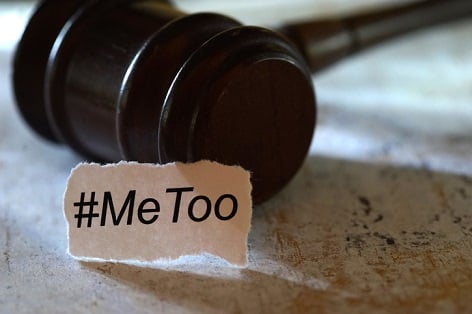
There are five simple steps employers can take to create a workplace that respects diversity

by Michal Roucek
In October 2017, the New York Times reported decades of sexual harassment allegations against Hollywood mogul Harvey Weinstein. Coupled with the #MeToo social media campaign, a global discussion on sexual harassment in the workplace was unleashed.
Australia is not immune from these types of inappropriate behaviours; in 2012, an Australian Human Rights Commission survey concluded that one in four women have suffered from sexual harassment in the workplace.
The Weinstein allegations and #MeToo campaign increase the imperative for employers to prevent inappropriate workplace behaviour in 2018. It only takes one claim to create a viral news story and it only takes one viral news story to irreparably damage a brand.
Employers can’t control every movement of their workforce and whilst there are always going to be some individuals exhibiting ‘outlier’ behaviours, employers can take real steps to ensure that they are operating workplaces that respect diversity in practice.
How does an employer achieve best practice when it comes to minimising inappropriate sexual behaviour?
There are five simple steps employers can take to create a workplace that respects diversity.
1. Every employer should have a discrimination and sexual harassment policy. At a minimum, a sexual harassment policy must:
• define what does and does not constitute sexual harassment;
• outline internal procedures for making and investigating a complaint, and implementing disciplinary action;
• summarise the options available for dealing with a complaint; and
• outline the consequences for a breach of the policy.
2. Train employees in relation to your organisation’s values and expected behaviours.
3. Implement a tailored, specialized training or discussion forum for managers. It is critical that your management team understand their role in preventing sexual harassment - both by leading from the front and by being the ‘first responders’ in relation to any possible improper behaviour. Managers need to know how to respond to the common introduction that precedes many misconduct allegations: “I don’t want you to tell anyone, but...”
4. Ensure all allegations of sexual harassment are investigated by an independent and impartial person. In some cases, an internal HR or management officer may be sufficiently detached from the individuals involved to conduct the investigation. In other cases (particularly where allegations are made against senior executives), it may be impossible to ensure a process that can be perceived as being impartial without briefing an external investigator.
5. Implement a claims reporting process. Boards and senior management should have oversight of the number of harassment or discrimination claims arising from particular work sections. Reviewing the number of claims being made on a periodic basis helps to identify trends which in turn might shed light on areas within the business that might not be culturally aligned.
At the end of the day, it’s about culture
Whilst all the above steps will help to minimise exposure to liability, at the end of the day, if an employee’s values and behaviours do not align with your organisation’s culture, then ultimately you need to decide whether there is a place for the employee within your organisation.
For as long as an organisation maintains the employment of individuals who might be ‘productive’ but who do not align with the organisation’s stated values (and yes - this does often happen), the organisation will continue to encounter hurdles to employee engagement and face claims relating to workplace stress, bullying, discrimination and sexual harassment.
Terminating the employment of employees on behavioural or cultural grounds can be more difficult than a run-of-the-mill performance based dismissal. However, provided employers obtain good legal advice, there are often ways to ensure that problematic employees either rectify their behavior or leave the organisation in a manner that does not give rise to significant exposure to liability.
Michal Roucek, Senior Associate at Australian Business Lawyers & Advisors (ABLA). Serving business and only business, this legal and advisory firm is trusted by the Australian Chamber of Commerce and Industry and is the leading voice for industry in the Fair Work Commission. Call Joe on 1300 565 846 or [email protected] if you have any questions about matters raised in this article.